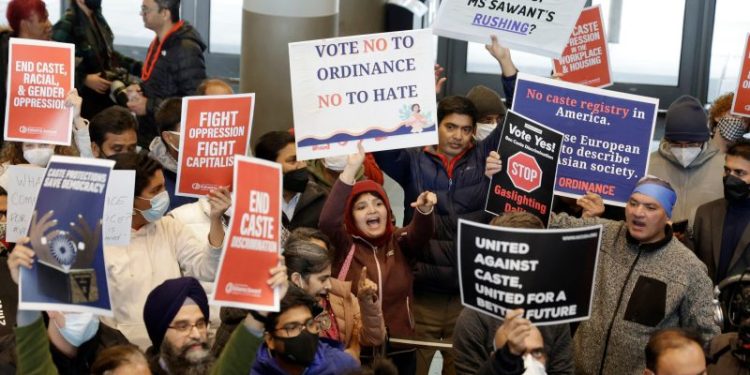Banning Caste Discrimination: Divided Opinions Among Indian Americans
As the United States’ South Asian population explodes and becomes increasingly politically active, Democrats are pushing hard for laws that would ban caste discrimination in the United States. Most recently, US Representative Pramila Jayapal has proposed a law that would “ban caste-based discrimination and ensure access to adequate remedies for these survivors of oppressive systems.”
Caste discrimination has been an issue in India since ancient times and persists in certain parts of Indian society. It involves a system of social stratification in which people are assigned to a certain caste or social group based on their birth. This caste system typically restricts people to certain occupations, limits their access to education, and reinforces a system of unequal treatment based on caste.
However, the idea of banning caste discrimination in the US has some members of the Indian-American community up in arms. They believe that this legislation could set a dangerous precedent for civil rights violations in the US and would be challenging to enforce, as discrimination is often based on subtle racial cues. Others cite the potential for mistreatment of those of Indian origin due to misunderstandings and false assumptions about caste.
Furthermore, many Indians and Indian Americans believe that an attempt to tackle the issue of caste-based discrimination in the US could have a negative impact on the Indian diaspora. India currently does not have any laws preventing caste discrimination and these individuals feel that enacting such legislation in the US would be a “slap in the face” to their native country.
Overall, the idea of introducing legislation to combat caste discrimination in the US has met with a great deal of resistance from some members of the Indian-American community. Any such law would need to be carefully crafted to ensure that it targets only direct discrimination and not inadvertent bias. It is also important for those in support of such legislation to better educate the public on what caste is and why it is wrong so as to reduce false assumptions and prejudice against those of Indian descent.
As the United States’ South Asian population explodes and becomes increasingly politically active, Democrats are pushing hard for laws that would ban caste discrimination in the United States. Most recently, US Representative Pramila Jayapal has proposed a law that would “ban caste-based discrimination and ensure access to adequate remedies for these survivors of oppressive systems.”
Caste discrimination has been an issue in India since ancient times and persists in certain parts of Indian society. It involves a system of social stratification in which people are assigned to a certain caste or social group based on their birth. This caste system typically restricts people to certain occupations, limits their access to education, and reinforces a system of unequal treatment based on caste.
However, the idea of banning caste discrimination in the US has some members of the Indian-American community up in arms. They believe that this legislation could set a dangerous precedent for civil rights violations in the US and would be challenging to enforce, as discrimination is often based on subtle racial cues. Others cite the potential for mistreatment of those of Indian origin due to misunderstandings and false assumptions about caste.
Furthermore, many Indians and Indian Americans believe that an attempt to tackle the issue of caste-based discrimination in the US could have a negative impact on the Indian diaspora. India currently does not have any laws preventing caste discrimination and these individuals feel that enacting such legislation in the US would be a “slap in the face” to their native country.
Overall, the idea of introducing legislation to combat caste discrimination in the US has met with a great deal of resistance from some members of the Indian-American community. Any such law would need to be carefully crafted to ensure that it targets only direct discrimination and not inadvertent bias. It is also important for those in support of such legislation to better educate the public on what caste is and why it is wrong so as to reduce false assumptions and prejudice against those of Indian descent.










